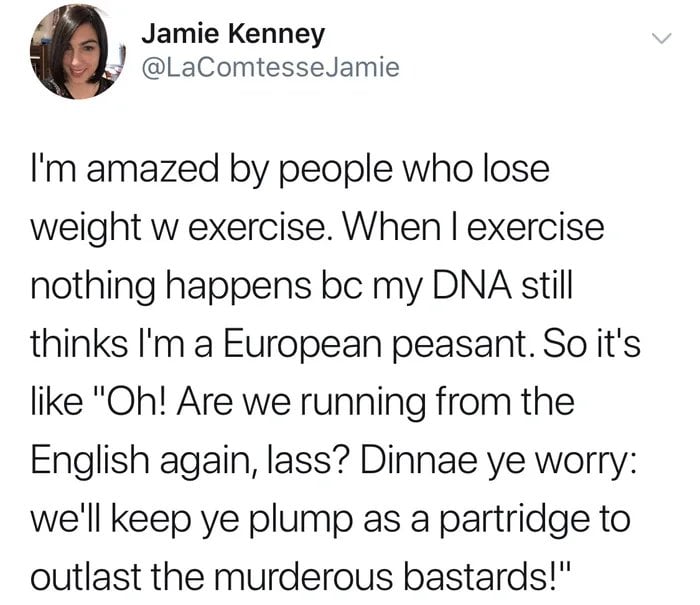this post was submitted on 01 Aug 2024
1059 points (96.0% liked)
me_irl
5504 readers
382 users here now
All posts need to have the same title: me_irl it is allowed to use an emoji instead of the underscore _
founded 2 years ago
MODERATORS
you are viewing a single comment's thread
view the rest of the comments
view the rest of the comments

It really is the "pull yourself up by the bootstraps" or "just don't take any drugs, duh" of weight loss. Like, you can't just ignore all the social, systemic issues in our health and food industries, reduce it all to cals in vs cals out, and expect that to work. It's reductive and unproductive.
People aren't having trouble with math or willpower, they're having trouble with the fact that most (emphasis on "most") readily available, cheap food is bad for you. Most people in poverty grew up with processed, heavily advertised junk and have literal addictions to this shit.
It's almost identical to saying "just stop taking drugs." Or "just stop drinking."
The reasons people turn to drugs and alcohol are not entirely different from the reasons people turn to food, but you have to keep eating something, and changing your diet from a very unhealthy one to a healthy one is a lot of work. You can keep going to the drive through, but a, they're literally designed to get you to buy more than you want, and b, would you tell an alcoholic to go in to a liquor store for soda on day 1 of recovery?
It’s also misleading as hell, because calorie absorption and basal metabolic rates differ so widely among people. My husband and I live similarly active lifestyles and eat about the same amount of food. I’m slightly taller than he is, but half his weight. I don’t know how that happens, but it does.
Not really, evidence suggests that between average people you will see at most 4% difference in BMR
If it’s not a big difference, how does it lead to such divergent results? I’d suggest that a 4% difference is in fact pretty big, as that’s the equivalent of over 500 calories a week.
Do you have a link for the evidence? I’d be interested to see what it says about calorie absorption, as I suspect that has an even greater effect. Unfortunately, everyone just seems to repeat CICO as though it’s easy or simple to measure either of those inputs with accuracy. People just hope they’re average and that it will work normally for them. Most people are average, so that works for a lot of people, but not everyone.
I personally don’t digest animal fat well, so anything other than white meat chicken will give me the shits. I don’t eat animal products anymore, but when I did, I obviously wasn’t receiving 200 calories from 200 calories worth of beef. My sister has celiac’s, and when she realized it and stopped eating gluten, she gained a bunch of weight, because she was finally absorbing calories from her diet.
That's literally exactly how it has worked for me. Obviously it takes some will power and discipline, but so does basically everything.
Our individual stories do not always translate to the bigger picture, gmtom. You might have grown up in a household where you were insulated from the predations of the processed food industry. You might have had better habits instilled in you as a child. You might have had a positive body image at one point in your life, to serve as inspiration for your weight loss journey. Maybe none of those are true and you truly are one of the lucky (and hard working!) ones who escaped this situation just like the addicts who recover through willpower alone. Regardless, we cannot all rely on being gmtom.
My final paragraph is not focused on the individual but on the epidemic of obesity. We cannot solve this through brow beating about CICO just like Republicans aren't going to solve the drug addiction crisis through jailing everyone with an addiction. People are using food to fill a hole in their lives, just like drugs, and we have to do the hard work of figuring that root out. Otherwise, we are doomed to become ineffective and unhelpful, leaving people to suffer.